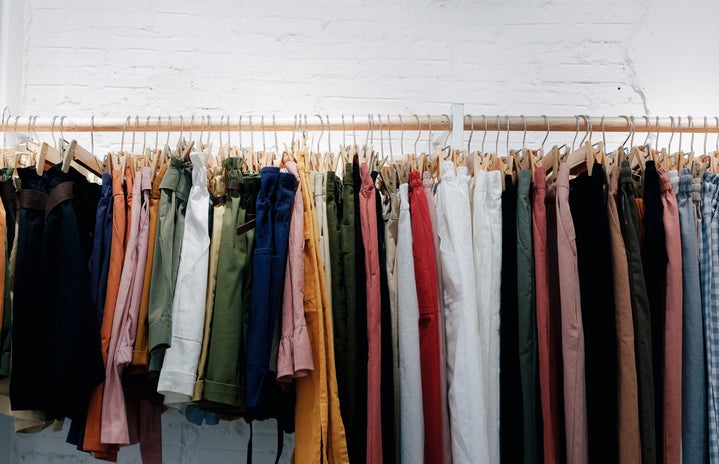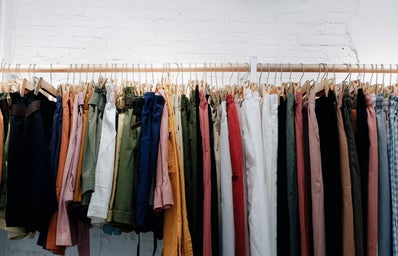In recent years, fast fashion has unfortunately risen exponentially in popularity, profits, and presence in the world. Fast fashion is defined by its quick adaptations to trends, cheaper prices, and questionable quality. What people may not realize is that these brands are also incredibly harmful to the environment, and also tend to mistreat the workers in the factories that produce the clothing.
Now arguments have been taking place, in regards to the morality of these shops, but people point out that in recent years clothes have become more and more expensive and note that buying from stores or better brands isn’t in their budget. While this is true, people are now using this as an excuse to buy excessive amounts of items from these brands without acknowledging the consequences this has on the world. I’m not going to shame people who are struggling financially and occasionally buy from a fast fashion brand, but the people who buy hundreds of dollars worth of clothing to show off for hauls, wear it once, and then get rid of it leave a bad taste in my mouth.
The main give and take with fast fashion is the quality. The more expensive the clothing, the longer it will last as it is made with better materials, more time, smaller batches, etc. With fast fashion, clothing is mass-produced and made to buy cheap and sell fast, so quality is not one of their main concerns. Traditional fashion only has two seasons used to create clothing, which is spring/summer and then fall/winter, whereas fast fashion can have up to fifty seasons (or micro seasons) of clothing.
Another aspect that fast fashion ignores is the environmental impact it leaves, as well as its mistreatment of the workers.
In particular, Boohoo, a fast fashion brand has been reported for underpaying their workers and not setting goals for environmental standards. While they have recently tried to change their ways in order to become more sustainable, many have voiced their doubts. An article from Ethical Unicorn says it well: “the exploitation of people and planet has to be built into the system in order to turn a profit, with low prices leading to the need for constant overconsumption and overuse of resources in order to keep the cash coming in”. These companies are more focused on producing profits than producing quality products, and because this is their business model, it is unlikely that they will be able to change the way they want and still make their desired profits. Boohoo neglects its workers almost as much as the environment; there are reports that workers have been paid less than half of the minimum wage in their area, as well as being forced to work in unsafe conditions during the peak of the COVID-19 pandemic.
Publically Boohoo has recently partnered with Kourtney Kardashian, who after using 101,000 excess gallons of water during a drought, has been named their sustainability ambassador. Her collection was recently released and was toted as being made of partially recycled material as a way to check the sustainability box. However, in an ironic but unsurprising twist, it also contains a chemical that cannot be recycled and so any throwaways or excess will be sent to a landfill. The irony behind these actions is palpable and unfortunately will probably be harmful to the environment and the people forced to work in those conditions. Overall, while all fast fashion is bad, the out-of-touch-ness Boohoo has recently shown is all much laughable. Hopefully, in the future, this brand will actually attempt to be better for the world around it.
References
https://www.wri.org/insights/apparel-industrys-environmental-impact-6-graphics
https://www.buzzfeed.com/natashajokic1/kourtney-kardashian-boohoo-backlash


